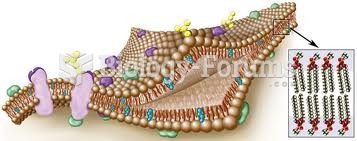|
|
|
It is difficult to obtain enough calcium without consuming milk or other dairy foods.
Many medications that are used to treat infertility are injected subcutaneously. This is easy to do using the anterior abdomen as the site of injection but avoiding the area directly around the belly button.
Although puberty usually occurs in the early teenage years, the world's youngest parents were two Chinese children who had their first baby when they were 8 and 9 years of age.
Though methadone is often used to treat dependency on other opioids, the drug itself can be abused. Crushing or snorting methadone can achieve the opiate "rush" desired by addicts. Improper use such as these can lead to a dangerous dependency on methadone. This drug now accounts for nearly one-third of opioid-related deaths.
In Eastern Europe and Russia, interferon is administered intranasally in varied doses for the common cold and influenza. It is claimed that this treatment can lower the risk of infection by as much as 60–70%.
 Thoracentesis. A needle is inserted between the ribs to withdraw fluid from the pleural sac at the b
Thoracentesis. A needle is inserted between the ribs to withdraw fluid from the pleural sac at the b
 A schematic of a typical glow plug circuit. Notice that the relay for the glow plug and intake air ...
A schematic of a typical glow plug circuit. Notice that the relay for the glow plug and intake air ...





